|
As both a transgender woman and an experienced Anglican priest, it is highly disappointing to hear of the recent resolution of the Anglican Synod of Tasmania about what it calls ‘Biological Sex’. This betrays all the faults of what was a very late ‘motion without notice’: being ill-considered, under-informed and divisive, especially in its lack of attention to Anglican and other transgender people’s own well-substantiated experiences of faith and identity. For both Tasmania and the Anglican Communion are blessed with many wonderful transgender people who continue to enrich our communities and bring new life to others. What a difference it then makes when we are listened to and engaged constructively. For my own experience is that, in affirming rather than denying our authentic God-given (not human labelled) gender, transgender people are indeed so much more fully incarnate, at peace and flourishing in our skins, biology and divine purpose. Denying this not only helps maintain unnecessary suffering but restricts the love and joy we have to share within the Church and wider world. After all, St Paul (in 1 Corinthians 12) encouraged the Church, as the Body of Christ, to value its members that are weaker and shamed. This kind of action however feels more like being freshly beaten up and an attempt to cut off transgender members, our families and friends. That is not the message of God’s love that Christians have to offer the world.
The resolution also seems to reflect a recently constructed approach to the Bible which narrows God’s colourful and dynamic kaleidoscope of creation to simplistic black and white binary categories. This does not do justice to how mainstream Anglican theology has typically sought to value the rich and varied textures of the scriptures and the best of evolving human reason. Nor does it sit well with increasingly trans affirming developments in many Anglican dioceses, and other Christian congregations, schools, and agencies across Australia. I hope therefore that Anglican leaders in Tasmania will think again and not encourage their parishes, schools, and other agencies to take such an unhelpful path. The same Synod passed other resolutions making a continuing welcome commitment to addressing environmental challenges and supporting people with disabilities. These are just two of many ways in which Tasmanian Anglicans contribute positively to their communities. What a shame transgender people are not yet regarded as worthy of similar full respect and engagement. For neither trans people nor people of faith benefit from perpetuating today’s unnecessary culture wars, especially those of us who are both. Human beings have genuine differences but, as St Paul also put it, we are called to be one in Christ, in whom ‘there is no longer male and female’. We can be, and do, so much more together. The Revd Dr Josephine Inkpin was ordained in the Church of England in 1986 and has served in many capacities in Anglican dioceses in England and, since 2001, in Australia, as well as an officer of the National Council of Churches in Australia for several years. She is an associate lecturer in the University of Divinity, a member of the global network of Trans and Non-Binary Clergy of the Anglican Communion, and the current Minister of Pitt Street Uniting Church in Sydney.
1 Comment
The more I grow older, and hopefully a little deeper in understanding, the more I am aware of how religious traditions have wrestled with sexuality and gender in all kinds of extraordinary ways. For sexuality and gender have always been such powerful aspects of human lives and spirituality has therefore necessarily engaged with them as vital features of revelation and relationship, as well as repression and resistance. Sadly. so many 'sanitised' and narrowed readings of the Bible and religious traditions have significantly contributed to human distancing from intimate, celebratory and mature sexuality and gender identities. These are typically those which have much airplay today in wider media as well as conservative and fundamentalist circles. When however we look afresh at scripture and tradition, particularly through lenses of 'queer' experience, we find something very different. Some features can be quite confronting, even profoundly disturbing, full of extraordinary violence and subjugation. Some aspects can also be very different from our our contemporary contexts. Yet there are others, rightly viewed, which can help us face up to our own opportunities for growth towards richer sexual and gendered lives. They can be quite challenging but offer considerable liberative potential. Among these is the story (in Genesis 32.22-31) of Jacob's wresting with the divine, their wounding and blessing...
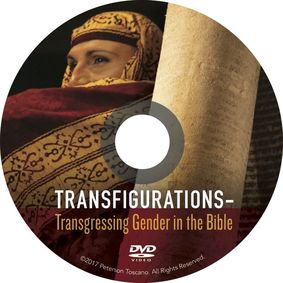 Have you ever considered how many of the best known Bible stories may, in one way or another, be queer or have queer aspects to them? One of the wonderful benefits for everyone of reading scripture afresh 'through LGBTI+ eyes' is certainly the new light that is thrown on so many passages we take for granted. As we bring the wide range of queer experiences to the text we ask different questions and find different things springing out. This is nothing new of course. The Bible has never been a closed book but has always been re-interpreted by every new generation, thereby encountering love and truth in new ways in scripture. It is only fundamentalists and entrenched conservatives who would freeze scriptural interpretation and imprison it in ideology and political self-interest. Take the story of Joseph in the book of Genesis for instance. Reinforced by the success of Tim Rice and Lloyd Webber's hugely successful Joseph and the Amazing Technicolour Dreamcoat, many of us are used to a particular set of 'standard' readings. Recent scholarship however opens up the possibility of other creative interpretations, not least fascinating gender variant possibilities... 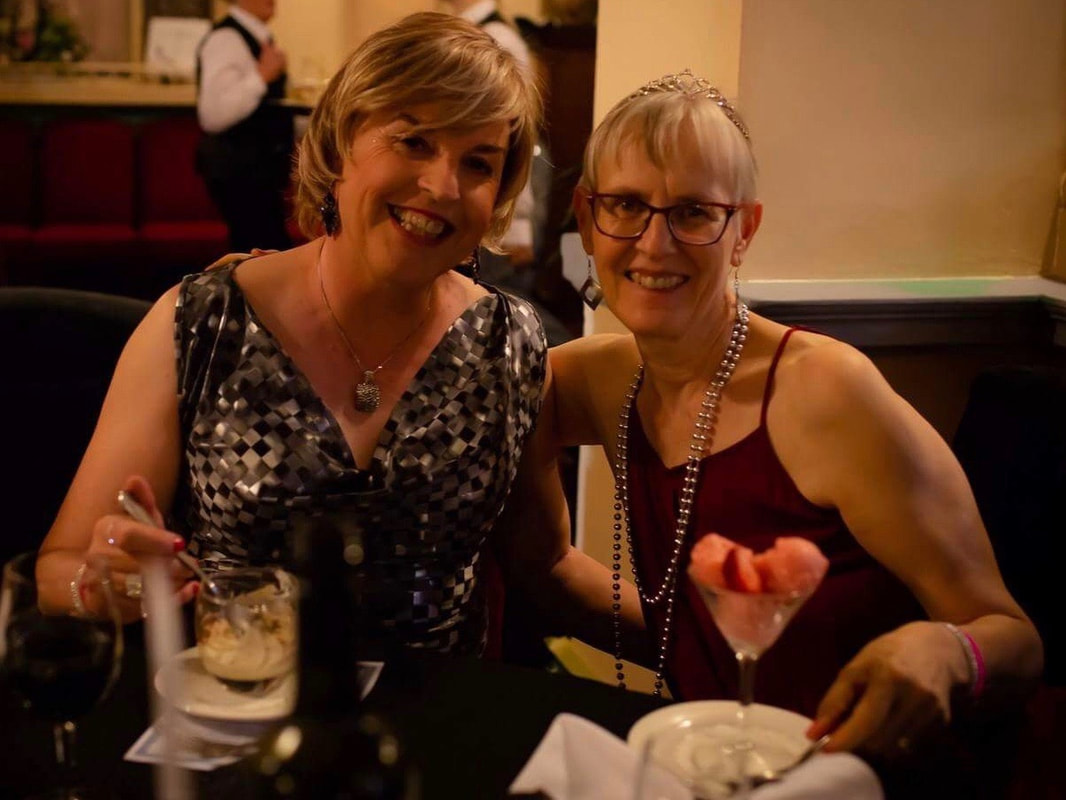 In times to come it will be extraordinary to imagine that some Christians insisted on married transgender people divorcing if they wished to claim their full identity. How scandalous a betrayal of God's love and Christ's teaching this is! It has been a long journey to address this in secular law in Australia and, sadly, the battle is not over in some religious quarters as well as in many parts of the world. Queensland, in which I now live, thankfully finally changed its law last night (with only four votes against, from the fringe Katter and One Nation parties). Hitherto, married transgender people have had to divorce if they changed their birth certificate to their true gender. I rejoice for friends and others who will directly benefit from this. For I know the pain this law has caused and have personally therefore lobbied hard for change. It will also be an encouragement for other necessary steps forward and for more religious people to come to their senses and renew their understanding both of marriage and of people of gender diversity. I write this with feeling, as well as after deep reflection on these subjects. For the status of my own marriage is under question in some slowly moving and blinkered parts of the Church, even in Australia itself. A leading member of the Anglican Diocese of Sydney for example has even gone so far as to challenge both my marriage and the ministry of my wife and I as 'living contrary' to the doctrine of Christ - see further transgender and the doctrine of marriage in Brisbane. Of course, in that instance, the aim is a distinctly political one: to attack my archbishop, my diocese and the mainstream pastoral approach and unfolding theology of the Anglican Communion as a whole. Yet such 'stop the world, we want to get off' thinking will not work. The ground is shifting in religious spheres too, as the actual lived experience of transgender people and their loved ones is gradually being revealed. Anglicans and other Christians across the world are responding, if sometimes hesitatingly, burdened as we are too much by our often exacting processes and the frenzied reactions of some. The Church of England for example, the church of my birth, has declared that it fully welcomes me and other transgender people, at every level of its life. As its leadership have expressed it (with my emphasis): The House of Bishops welcomes and encourages the unconditional affirmation of trans people, equally with all people,within the Church, the body of Christ,and rejoices in the diversity of that one body, into which all Christians have been baptized by one Spirit. My concern however is not with politics but with the love of God in people's lives. For, in some ways, in the face of such great odds, transgender people are still 'living miracles' even to exist at all - and some of us, tragically, do not make it. Our relationships are also always challenged, and sometimes shattered, by becoming more fully the people God has created and called us to be. The misery of rejection some of my gender diverse friends endure cuts me to the heart. So why would we not seek to strengthen those relationships which have not only worked through demanding change but have emerged stronger? In my case, and in others I know, my marriage is so much deeper for the full truth we live together. My wife could long see that we were suffering unnecessarily for years: 'where has Josephine gone?' she would say when I struggled to come to terms with myself. She knew, better than I, what I, and we together, needed. No marriage is 100% perfect, and I do not pretend to be a moral paragon in my relationships in the past or present, but it is insulting, as well as disappointing, when fellow Christians cannot recognise that my marriage, of 33 years to date, is not a rich example of God's sacramental love to the world (nb. that is my wife and I above in case such a picture is needed). In transitioning, I and others have not chosen (as has been alleged) 'to challenge the Biblical view of marriage' or to place my archbishop, or any one, 'in a difficult position'. Rather, we have simply sought to respond more fully, faithfully, with the whole of our being (as human beings, Christians, and priests), to the love of God for us. Of course, this means that we need to renew some aspects of received understanding. That however is the history of Christianity, as well as that of humanity as a whole, as we have developed our theology of marriage over 2000 years: working through inherited patriarchy and polygamy, rejecting women's subordination (and, for most of Christian history, lack of legal rights), developing compassion and legal recourse for those trapped in violent or unhealthy marriages, and embracing what is good in companionate relationship. Moving beyond the pressing past survival and scarcity preoccupations which informed obsessions with procreation and cis and hetero-normativity, our liturgies today increasingly reflect the wisdom we have gained and the love to which we aspire. There is a desperate resort of late to seeking proof-texts, such as Genesis 1.27 and Matthew 19.5, which may turn back the waters. However, apart from the inability of such texts to be bear the strain (even when isolated from their context and the weight of scholarship), this only confirms such Christianity as a latter day Canute, fruitlessly resisting a sea-change of love and affirmation. I therefore urge all people of faith similarly to affirm unconditionally the lives, marriages and loving relationships of transgender people. Rather than be anxious, never mind put stumbling blocks in our lives (or worst still 'conversion' therapies), why not work with us at providing appropriate pastoral resources to strengthen our relationships? We certainly need them. Listen, educate, and above all hear and affirm the love and faith we have to share. It is astonishing to me that Christians would not want to see healing and the renewal of such love for others. Marriage, like the sabbath, as Jesus might have said, is not made to subjugate the wondrous diversity of human life into a constricting bed of pain. Marriage, at least for Christians, is made for God's renewing of humanity. 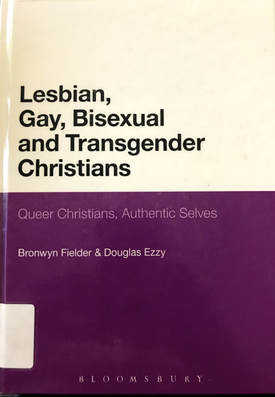 How often, I wonder, has a Lesbian, Gay, Bisexual, or Transgender Christian been attacked as a religious, moral, or logical 'impossibility', 'a contradiction in terms', a living oxymoron? Pretence and deceit are certainly themes which hover around gender diverse people and discussion of our lives and sense of being. Spiritually speaking, such features are typically regarded as unhealthy. Whilst, for instance, there are some positive stories of trickery in the Bible (notably in the case of the patriarch Jacob), these are usually the sign of a wayward, scheming, selfish or misdirected person. Later transitioning religious people are thus frequently caught in certain traps as they become the more 'authentic' selves God calls them to be. On the one hand, we may be called people of pretence and deceit by those who refuse to accept the realities of our identity. On the other hand, we may be attacked for hitherto seemingly living lives that were not true or misleading. At the very same time, we may also be dealing with our own shame, guilt, and confusions about what we may have 'pretended' to be. Yet, as we are reminded in both the powerful scriptural text of 2 Corinthians 6, and a just published book Lesbian, Gay, Bisexual and Transgender Christians: Queer Christians, Authentic Selves (by Bronwyn Fielder & Douglas Ezzy, Bloomsbury Press 2018),, we may be 'treated as impostors but are true' (2 Cor 6.8b)... 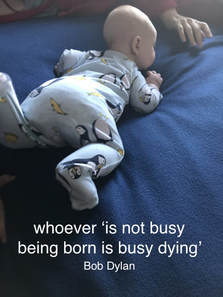 As I complete another full year of my own life, and in the wake of the celebrations of the nativity of Jesus, I have been pondering what it means to be born, spiritually speaking. For birth, like life itself, is easily taken for granted. Actually it is a great mystery, in the best sense of that word. Like gender, it is not simple or straightforward, as many assume. Rather, it is a continuing revelation and developmental process. Indeed I am currently very struck by how my baby grandchild is changing every moment, in response to every encounter and their growing awareness of self. It feels like they are being born afresh, in new ways, every second. Their 'birth' was clearly not finished at their literal entry into this life. Nor is it ever complete for any of us, at least in this life. Rather, each of us, as Bob Dylan once wrote in a notable lyric, is either 'busy being born or busy dying'. Perhaps this is also part of what transgender people have to share with the world in our own (re)birthing?... |
AuthorThe Revd Dr Jo Inkpin: Archives
March 2024
Categories
All
|
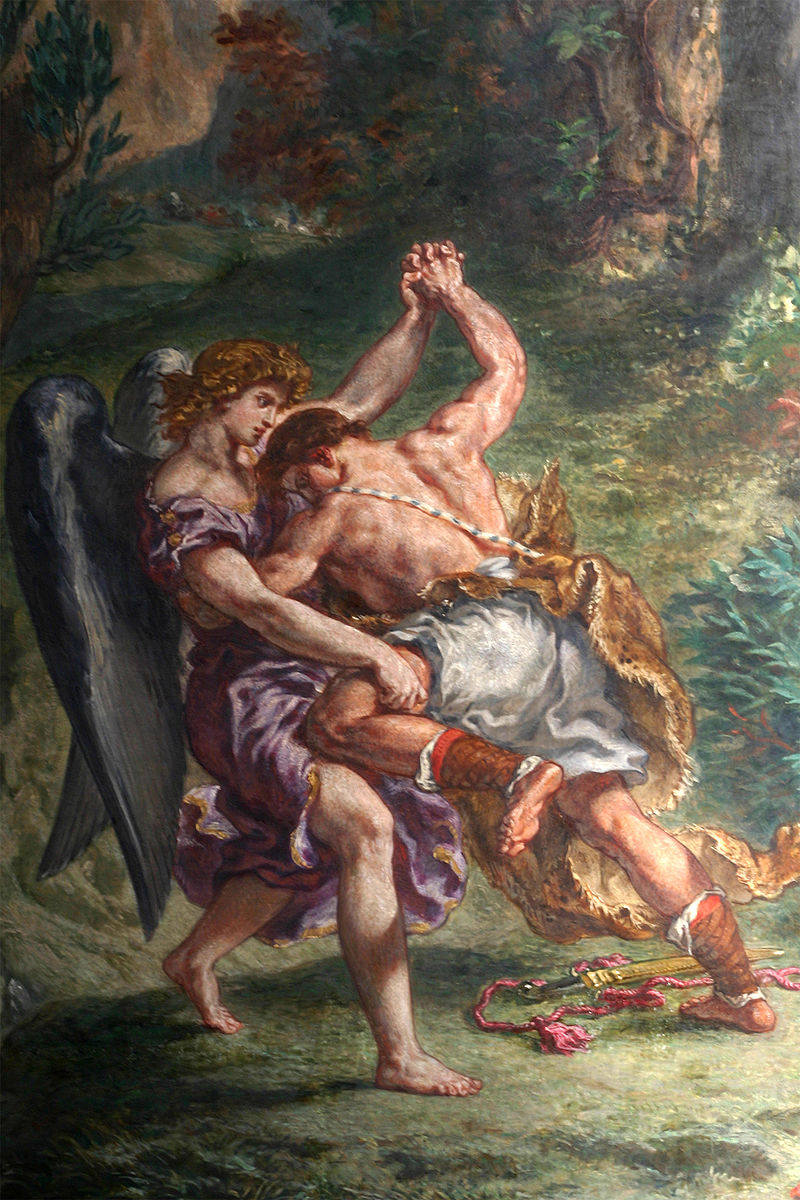
 RSS Feed
RSS Feed